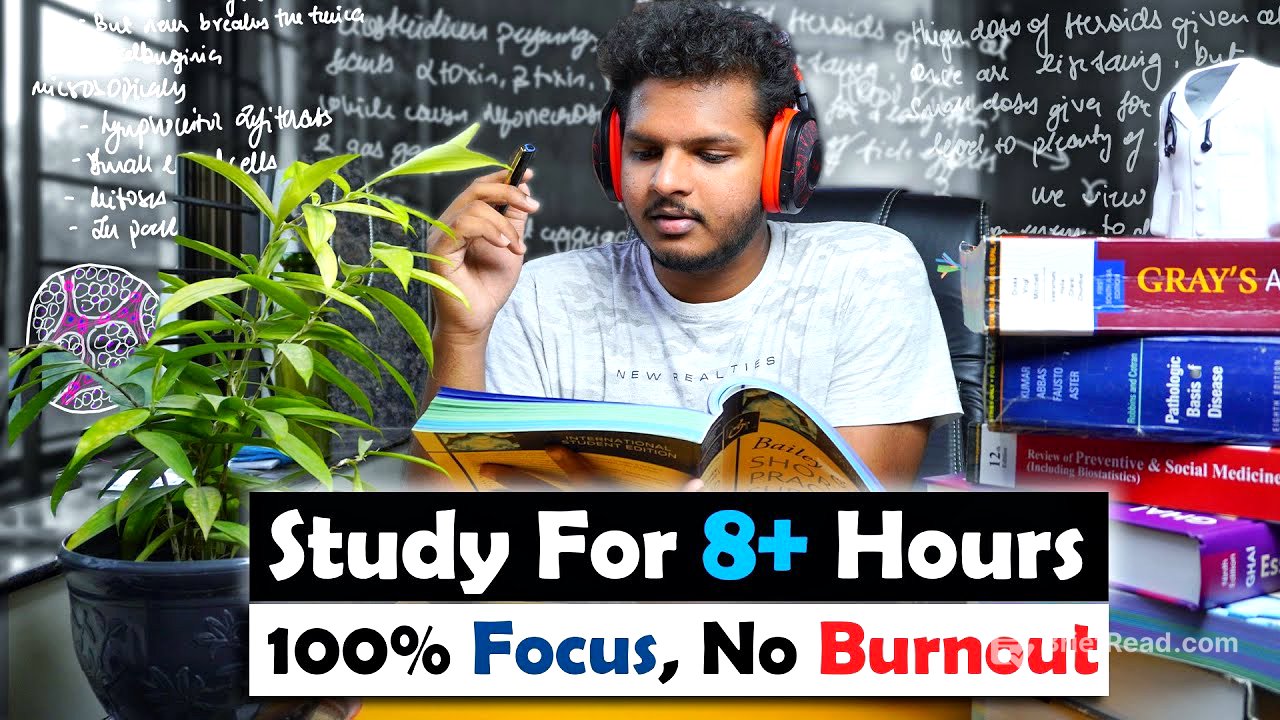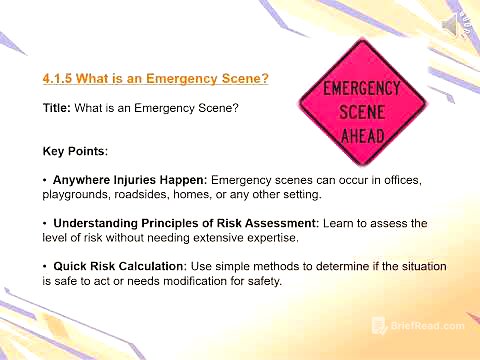TLDR;
This video provides advice on how to study for long hours and prevent burnout. It covers practical tips such as measuring study time, understanding the law of diminishing returns, minimising distractions, setting focus hours, creating a study schedule, alternating between active and passive studying, and maintaining a positive mindset. Additionally, it addresses burnout by advising on recognising symptoms, taking time off, optimising study environments (ergonomics), and sharing the study journey with others.
- Measure study time accurately to understand study patterns.
- Take regular breaks to avoid diminishing returns and burnout.
- Maintain a positive mindset towards the subject matter.
Intro [0:00]
The speaker introduces himself as a final year MBBS student and explains that he will share his methods for studying for extended periods and reducing burnout, which he has developed through research and personal experience.
How to Study for Long Hours? [0:29]
The first key point is to accurately measure study time using a website like bigtimer.net. Start the timer when beginning to study and pause it during distractions to get an accurate measure of focused study time. Aim for two to three study sessions daily, spaced out to prevent burnout. The law of diminishing returns suggests productivity decreases the longer you study the same material. Research indicates the optimal study duration is two to four hours, so split study time into focused blocks with breaks in between, similar to the Pomodoro method. Wake up and start studying immediately without delay to capitalise on a fresh and clear mind. Minimise distractions by physically removing distracting objects like phones from the study area, or use apps like Zen Mode or Focus Mode to block notifications. Schedule dedicated focus hours with the aim of completing a specific objective within a set time. Plan a detailed study schedule to know exactly what to study each day. Alternate between passive studying (reading) and active studying (solving question banks) to maintain engagement and knowledge retention. Cultivate a positive mindset towards the subject matter to avoid aversion and increase study endurance.
How to prevent burnout? [5:43]
Preventing burnout involves recognising the signs, such as decreased concentration, constant mental and physical exhaustion, and a lack of motivation. Taking time off is crucial; this could involve a trip or simply relaxing at home, trying new activities to refresh the mind. Ergonomics play a significant role, so ensure a comfortable study environment with a good table, chair, and lighting. Consider using a library if home conditions aren't ideal. Sharing the study journey with others can combat loneliness and provide motivation. Join study sessions online or study with a friend, setting shared objectives to create a supportive environment.
Most Important tip! [8:46]
The speaker jokingly suggests subscribing to his channel as a final tip to stay motivated and productive.









